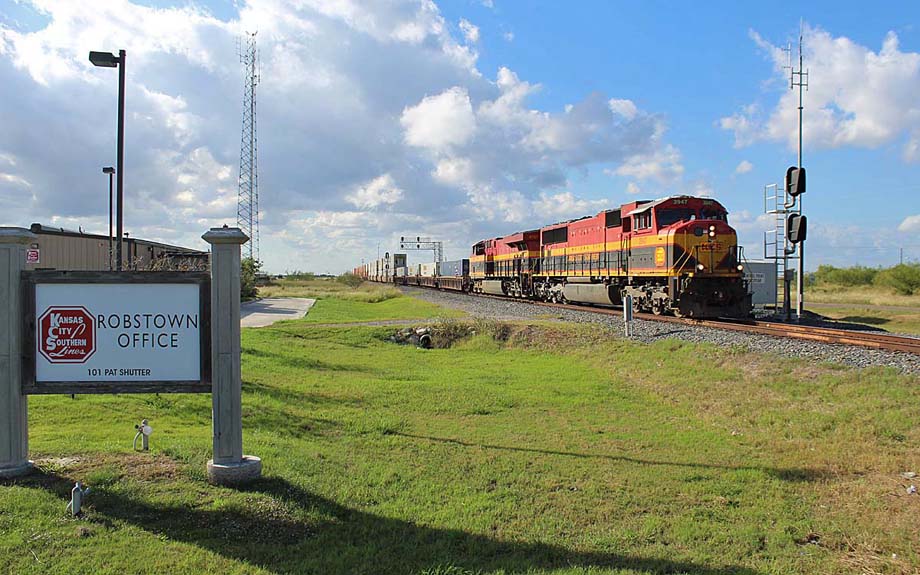
Washington District of Columbia USA - Canadian National is challenging some conclusions federal
regulators reached in their draft environmental review of the proposed Canadian Pacific-Kansas City Southern
merger.
Chief among them, the assumption that the merged Canadian Pacific Kansas City would not increase fuel consumption and
greenhouse gas emissions.
CN, in an 14 Oct 2022 filing with the Surface Transportation Board, challenged the draft environmental impact
statement's conclusion that overall railroad diesel fuel use would not change after the merger.
CPKC's traffic growth is expected to come at the expense of competing railroads, so any increase in fuel use at CPKC
would be offset by a decline in fuel consumption at the other railroads, the environmental statement
concludes.
But CN says the board failed to take into account that CPKC's routes, on average, are 217 miles longer than the average
mileage of existing routes on competing railroads.
When combined with CPKC's rail traffic diversion projections, this 11.7 percent mileage difference means CPKC would add
more than 122 million additional unit miles to the rail network annually compared with existing routes, primarily on
BNSF Railway and Union Pacific.
In the busy lane linking Chicago with the Mexican border at Laredo, Texas, CPKC's route is 19.9 percent longer than the
shortest route, UP's.
"Adding 122.6 million circuitous unit-miles to the rail network in order to move the same volume of traffic
currently being moved by other railroads will have negative environmental impacts that need to be balanced against any
asserted environmental benefits of the CPKC merger," CN consultant David Hunt wrote.
CN also asks the board's environmental officials to require CP and KCS to verify or resubmit their truck diversion
data.
CN questioned whether CP and KCS are undercounting the projected daily truck traffic at some of the combined railroads'
intermodal terminals.
Higher increases, CN contends, might trigger an environmental review.
CN also argues that the STB's environmental analysis should also cover its proposal that as part of an approval of the
merger CP be required to divest the KCS line linking Springfield, Illinois, with Kansas City and St.
Louis.
CN would then link the Springfield Line with its former Illinois Central to create a new single-line route linking K.C.
with Chicago, Detroit, and Eastern Canada.
Bill Stephens.
(likely no image with original article)
(usually because it's been seen before)
provisions in Section 29 of the Canadian
Copyright Modernization Act.

